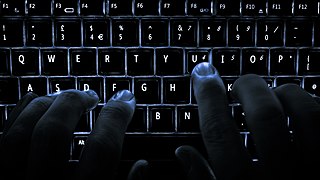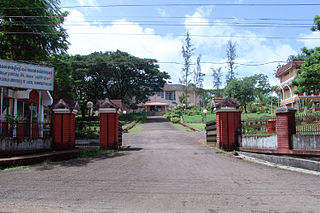Importance of October 17 for India
October 17 is significant for the Digital Society in India since it was on October 17, 2000, that Information Technology Act 2000, the first law of the digital society in India was notified. This notification gave for the first time in the country, legal recognition for electronic documents. It also provided a legally recognized method of authentication of electronic documents by means of digital signatures. Additionally, Information Technology Act 2000 recognized Cyber Crimes and prescribed a fast track grievance redressal mechanism for Cyber Crimes.
These provisions were critical for the development of digital society since it enabled digital contracts to be formed in support of e-commerce and e-governance. It is therefore appropriate that the day be remembered as an important event in the e-history of India. Cyber Law College was the first organization in India to recognize October 17 as a "Digital Society Day" and undertake specific programmes related to the fulfillment of the objectives of the Information technology Act. Digital Society Foundation of India, a Charitable Trust promoted by Naavi the founder of Cyber Law College has also started several activities to encourage the participation of the community in creating better awareness of Cyber Laws in India.
October 17 also being the Poverty Alleviation Day, and Poverty Alleviation through ICT being the theme of the WSIS, Digital Society Foundation is undertaking projects that would help Digital Society contribute to the alleviation of poverty in rural India.
The formal celebration of the day started in 2006 at Bangalore where in an event organized by Digital Society Foundation, a trust promoted by Cyber Law College October 17 formally declared as the Digital Society Day by the honourable Judge of Karnataka High Court Sri N Kumar. Since then, this historic day has been commemorated each with activities of interest to the digital society in India.
Legal instrument is a legal term of art that is used for any formally executed written document that can be formally attributed to its author, records and formally expresses a legally enforceable act, process, or contractual duty, obligation, or right, and therefore evidences that act, process, or agreement. Examples include a certificate, deed, bond, contract, will, legislative act, notarial act, court writ or process, or any law passed by a competent legislative body in municipal (domestic) or international law. Many legal instruments were written under seal by affixing a wax or paper seal to the document in evidence of its legal execution and authenticity. However, today many jurisdictions have done away with the requirement of documents being under seal in order to give them legal effect.

Cybercrime is a crime that involves a computer and a network. The computer may have been used in the commission of a crime, or it may be the target. Cybercrime may harm someone's security and financial health.
An electronic signature, or e-signature, is data that is logically associated with other data and which is used by the signatory to sign the associated data. This type of signature has the same legal standing as a handwritten signature as long as it adheres to the requirements of the specific regulation under which it was created.

A charitable organization or charity is an organization whose primary objectives are philanthropy and social well-being.
In evidence law, digital evidence or electronic evidence is any probative information stored or transmitted in digital form that a party to a court case may use at trial. Before accepting digital evidence a court will determine if the evidence is relevant, whether it is authentic, if it is hearsay and whether a copy is acceptable or the original is required.

Digital forensics is a branch of forensic science encompassing the recovery, investigation, examination and analysis of material found in digital devices, often in relation to mobile devices and computer crime. The term digital forensics was originally used as a synonym for computer forensics but has expanded to cover investigation of all devices capable of storing digital data. With roots in the personal computing revolution of the late 1970s and early 1980s, the discipline evolved in a haphazard manner during the 1990s, and it was not until the early 21st century that national policies emerged.
Information sensitivity is the control of access to information or knowledge that might result in loss of an advantage or level of security if disclosed to others.

The Information Technology Act, 2000 is an Act of the Indian Parliament notified on 17 October 2000. It is the primary law in India dealing with cybercrime and electronic commerce.
A Digital Postmark (DPM) is a technology that applies a trusted time stamp issued by a postal operator to an electronic document, validates electronic signatures, and stores and archives all non-repudiation data needed to support a potential court challenge. It guarantees the certainty of date and time of the postmarking. This global standard was renamed the Electronic Postal Certification Mark (EPCM) in 2007 shortly after a new iteration of the technology was developed by Microsoft and Poste Italiane. The key addition to the traditional postmarking technology was integrity of the electronically postmarked item, meaning any kind of falsification and tampering will be easily and definitely detected. Additionally, content confidentiality is guaranteed since document certification is carried out without access or reading by the postal operator. The EPCM will eventually be available through the UPU to all international postal operators in the 191 member countries willing to be compliant with this standard, thus granting interoperability in certified communications between postal operators. In the United States, the US Postal Service operates a non-global standard called the Electronic Postmark, although it is soon expected to provide services utilizing the EPCM.
Worldwide, legislation concerning the effect and validity of electronic signatures, including, but not limited to, cryptographic digital signatures, includes:
Gambling in India varies by state; states in India are entitled to formulate their own laws for gambling activities. Some states like Goa have legalised casinos. Common gambling activities like organized betting are restricted except for selective categories including lottery and horse racing.

Cyber ethics is the philosophic study of ethics pertaining to computers, encompassing user behavior and what computers are programmed to do, and how this affects individuals and society. For years, various governments have enacted regulations while organizations have defined policies about cyberethics.
Information technology law concerns the law of information technology, including computing and the internet. It is related to legal informatics, and governs the digital dissemination of both (digitized) information and software, information security and electronic commerce aspects and it has been described as "paper laws" for a "paperless environment". It raises specific issues of intellectual property in computing and online, contract law, privacy, freedom of expression, and jurisdiction.
The Electronic Frontier Foundation (EFF) is an international non-profit digital rights group based in San Francisco, California. The foundation was formed on 10 July 1990 by John Gilmore, John Perry Barlow and Mitch Kapor to promote Internet civil liberties.
Cyberstalking is the use of the Internet or other electronic means to stalk or harass an individual, group, or organization. It may include false accusations, defamation, slander and libel. It may also include monitoring, identity theft, threats, vandalism, solicitation for sex, doxing, or blackmail.

Kerala Institute of Local Administration, abbreviated as KILA, is an autonomous training, research and consultancy organisation constituted under the Ministry of Local Self Government, Government of Kerala, registered as per Travancore – Cochin Literacy, Scientific and Charitable Societies Act-1955. KILA was established in 1990, in the pattern of a national institute, with the main objective of strengthening decentralization and local governance.
All European countries show eGovernment initiatives, mainly related to the improvement of governance at the national level. Significant eGovernment activities also take place at the European Commission level as well. There is an extensive list of eGovernment Fact Sheets maintained by the European Commission.
There is no commonly agreed single definition of “cybercrime”. It refers to illegal internet-mediated activities that often take place in global electronic networks. Cybercrime is "international" or "transnational" – there are ‘no cyber-borders between countries'. International cybercrimes often challenge the effectiveness of domestic and international law, and law enforcement. Because existing laws in many countries are not tailored to deal with cybercrime, criminals increasingly conduct crimes on the Internet in order to take advantages of the less severe punishments or difficulties of being traced. No matter, in developing or developed countries, governments and industries have gradually realized the colossal threats of cybercrime on economic and political security and public interests. However, complexity in types and forms of cybercrime increases the difficulty to fight back. In this sense, fighting cybercrime calls for international cooperation. Various organizations and governments have already made joint efforts in establishing global standards of legislation and law enforcement both on a regional and on an international scale. China–United States cooperation is one of the most striking progress recently, because they are the top two source countries of cybercrime.
Karnika Seth is an Indian lawyer, writer, educator, and policymaker. She specializes in cyber law, intellectual property law, media law, and the protection of women and children. She is one of the co-founders of the law firm Seth Associates and manages its Corporate & Cyber laws practice.
Ghana has one of the highest rates of cybercrime in the world, ranking 7th in a 2008 Internet Crime Survey. The most popular form of cybercrime in Ghana is cyberfraud and is typically achieved via credit card fraud. However, recent decreases in universal credit card usage has seen the expansion of other cybercrimes such as blackmail and hacking. This growth in crime has warranted a government response, with policies specifically addressing the cyberspace being developed. This has necessitated various studies including a cyber security maturity study which was inaugurated by the Ministry of Communications and conducted by the Global Cyber Security Capacity Center (GCSCC) of the University of Oxford in collaboration with the World Bank.





